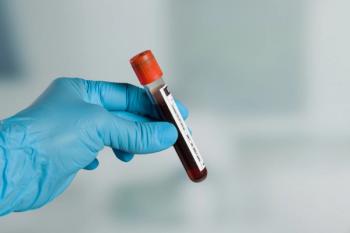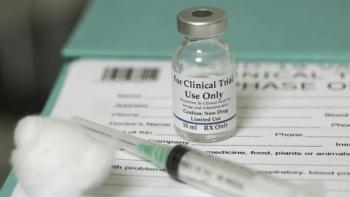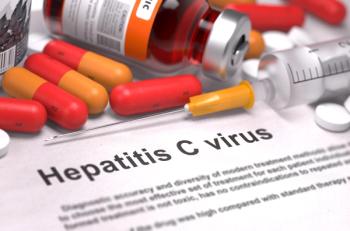
Experts discuss the role of pharmacists in CAR T-cell and gene therapy at the 2026 ASTCT Tandem Meeting in Salt Lake City.

Experts discuss the role of pharmacists in CAR T-cell and gene therapy at the 2026 ASTCT Tandem Meeting in Salt Lake City.

Researchers develop a novel therapy combining molecular glues and KRAS inhibitors, showing promise in treating KRAS-mutant non–small cell lung cancer.

A long-term study reveals that high-fat cheese consumption may lower dementia risk, challenging traditional views on dietary fat and brain health.

Prolonged exposure to specific air pollution components significantly increases depression risk in older adults, highlighting the need for targeted regulations.

Sacituzumab govitecan shows promising overall survival trends in HR+/HER2− metastatic breast cancer, despite not meeting primary progression-free survival goals.

Ribociclib shows higher early treatment modifications than palbociclib in HR+/HER2– breast cancer, emphasizing the need for proactive toxicity management.

A UK research team has pioneered a blood test using infrared technology to detect lung cancer cells, promising earlier diagnoses and personalized treatments.

Measles cases surge in the US, prompting quarantine measures in South Carolina schools and raising urgent vaccination concerns amid declining rates.

The FDA-approved flibanserin represents the first and only once-daily oral pill for postmenopausal women with hypoactive sexual desire disorder.

Pharmacists play a vital role in modern clinical trials, enhancing patient safety and trial efficiency through drug management and protocol development.

SABCS 2025 showcases breakthroughs in breast cancer therapy, emphasizing novel therapies and precision medicine to enhance patient outcomes.

Pivotal FDA approvals in breast cancer treatment focused on precision medicine and innovative therapies in 2025.

Exploratory findings from the MONALEESA-3 trial presented at SABCS 2025 show ribociclib plus fulvestrant significantly enhances survival in ILC.

Discover how antibody drug conjugates (ADCs) are transforming treatment for HER2-positive breast cancer with brain metastases at SABCS 2025.

Experts explore the evolving role of HER2- and TROP2-targeted therapies in breast cancer treatment at SABCS 2025, highlighting ADC advancements.

Latest findings presented at SABCS 2025 support trastuzumab deruxtecan's effectiveness and safety in treating HER2-positive breast cancer.

Tucatinib enhances first-line maintenance therapy for HER2-positive metastatic breast cancer, improving progression-free survival and safety outcomes, as shown in the HER2CLIMB-05 trial.

Cell-cycle–focused CDK inhibitors offer new options for HR+/HER2– metastatic breast cancer after CDK4/6 resistance.

Oral SERDs and combination therapies are redefining post-CDK4/6 treatment in HR+/HER2– metastatic breast cancer.

Exploratory analysis shows 1 in 4 patients maintain a long-term response to ribociclib.

Discover how the combination of palbociclib, trastuzumab, and endocrine therapy enhances survival in HER2-positive advanced breast cancer patients.

MRD and ctDNA testing could revolutionize monitoring and diagnosing precursor diseases of multiple myeloma.

A new rapid test for pertussis enables quick diagnosis in as little as 15 minutes, addressing rising whooping cough cases.

A cohort study of over 6 million US veterans revealed a 76% increased risk of pancreatic cancer following chronic hepatitis C infection.

Research uncovers the crucial role of lipids and microglia in Alzheimer disease, revealing new therapeutic targets for treatment and brain health.

Long-term follow-up data showed that about 50% of patients achieved the trial's primary end point.

Expanding lung cancer screening to an age-based model significantly enhances early detection, potentially saving over 26,000 lives annually in the US.

High-dose busulfan-melphalan enhances VRd therapy, improving progression-free survival in high-risk multiple myeloma patients undergoing ASCT.

CAR T-cell therapy shows promise for treating HER2-positive breast cancer with CNS metastases, offering a novel approach to improve patient outcomes.

A new study reveals fluoride in tap water enhances cognitive performance, debunking claims of its link to neurodevelopmental delays and lower IQ.

Published: April 18th 2025 | Updated: April 21st 2025

Published: January 22nd 2025 | Updated: January 28th 2025

Published: April 9th 2025 | Updated:

Published: June 19th 2025 | Updated:

Published: August 8th 2025 | Updated:

Published: September 24th 2025 | Updated: